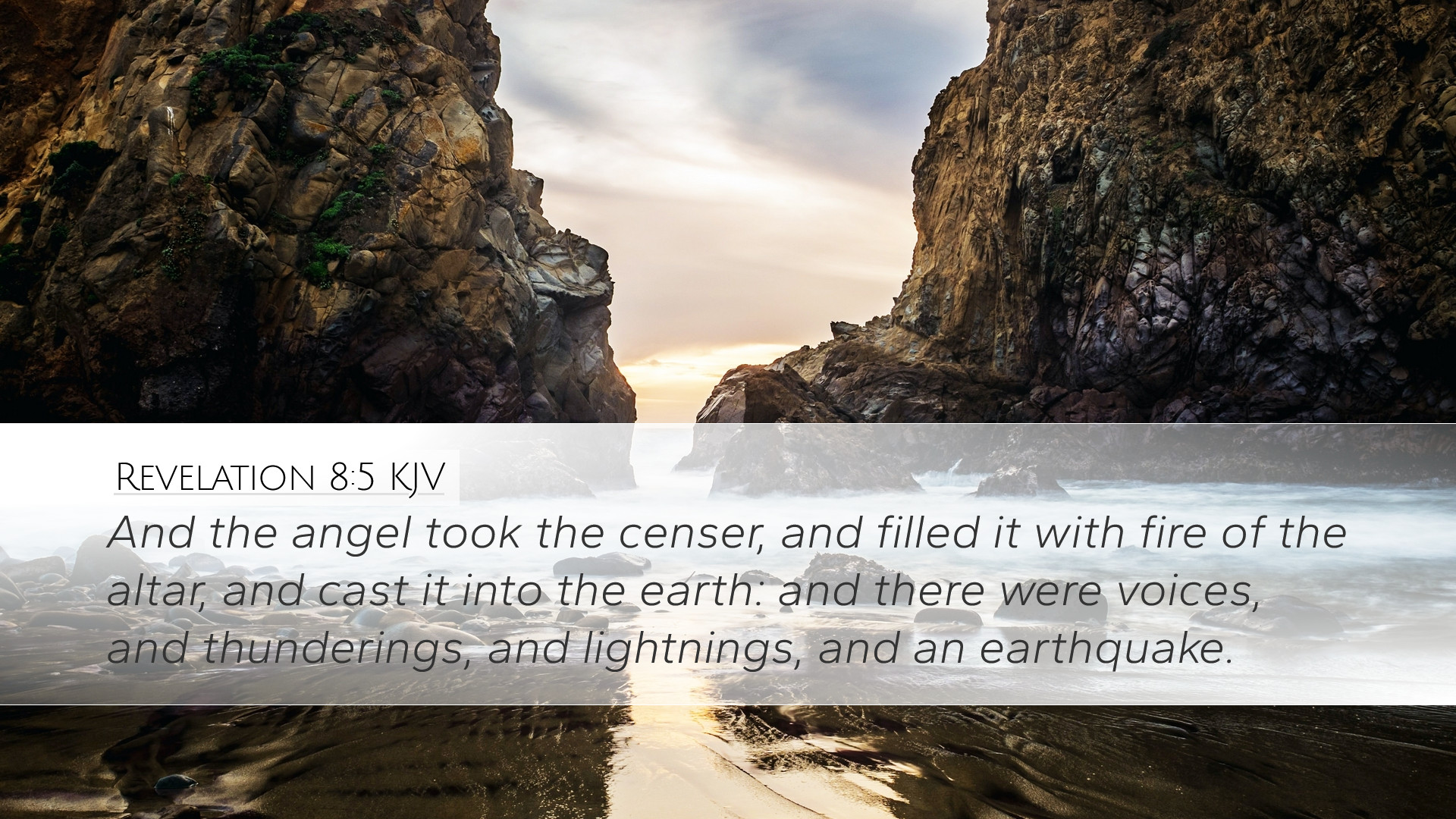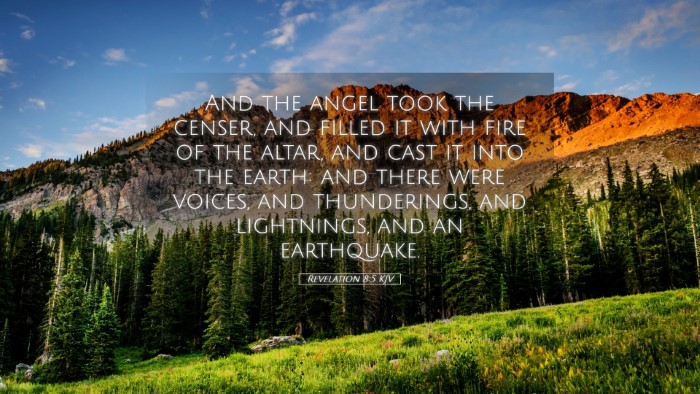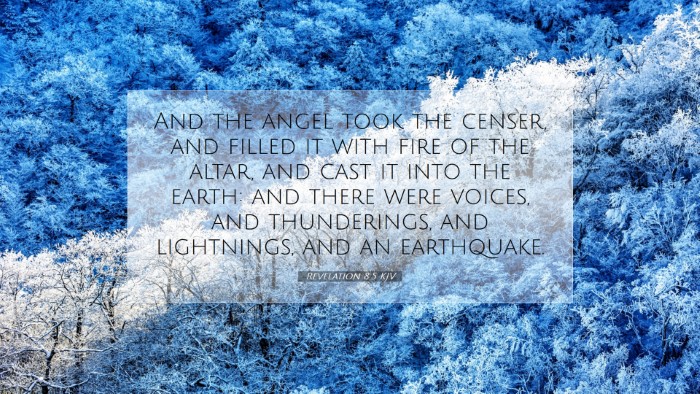Commentary on Revelation 8:5
"And the angel took the censer, and filled it with fire of the altar, and cast it into the earth: and there were voices, and thunderings, and lightnings, and an earthquake." (Revelation 8:5, KJV)
Introduction
This verse is pivotal within the context of Revelation, describing a moment of divine action that heralds significant events in the unfolding of prophetic history. The symbolism of the censer, the heavenly fire, and the resultant disturbances on earth is rich with theological meaning.
Exegesis of Key Components
The Angel and the Censer
The figure of the angel who takes the censer signifies a mediator between God and humanity. Matthew Henry notes that "the office of the angel here is to carry the prayers of the saints to God, as well as to execute judgment." The censer, a vessel used in worship, represents the intercession and supplication of believers. Albert Barnes emphasizes that "this action symbolizes the prayer of the saints ascending to heaven, which is now associated with divine judgment." Thus, the censer embodies the connection between devotion and the divine response.
Fire from the Altar
The fire filled within the censer derives from the altar, an essential motif throughout the scriptures denoting sacrifice, purification, and communion with God. Adam Clarke remarks, "The fire represents the divine wrath and judgment that is about to be unleashed upon the earth." This understanding aligns with the sacrificial system where fire would consume offerings, signifying both acceptance and destruction, thereby underscoring the dual nature of God’s holiness—His grace in receiving worship and His severity in executing judgment.
Casting into the Earth
The act of casting the fire into the earth is a powerful visual metaphor that represents the immediate and tangible impact of divine judgment on the world. Henry observes, "The act demonstrates that the prayers of the saints, when mingled with the fire of divine judgment, result in a ramification of trials." The transition from celestial to terrestrial emphasizes the interconnectedness between heaven's decisions and earthly experiences.
The Theological Implications
This single verse encapsulates the relationship between prayer, judgment, and the cosmos. It reflects a critical moment of divine intervention, which theologians interpret in various ways:
- Intercession: The prayers of the faithful are potent and carry weight before God, signifying their role in the eschatological unfolding.
- Judgment: The translation of divine judgment through the fiery censer warns of the coming tribulation for those who have turned away from God.
- Connection of Heaven and Earth: The act shows that events in heaven affect the earthly realm, elucidating the belief that the spiritual influences the material world.
Responses in Creation
The ensuing "voices, and thunderings, and lightnings, and an earthquake" signify profound disturbances in both the natural and supernatural realms. Each element finds symbolic significance:
- Voices: May symbolize the proclamation of God's will and the responses of angels or the saints.”
- Thunderings and Lightnings: Represent divine majesty and the fearful approach of God's judgment, reaffirming natural chaos in the face of divine authority.
- Earthquake: Is a cipher for monumental changes; this is both physical and spiritual upheaval, indicating God's displeasure and the need for repentance.
Application for Today's Believers
For pastors, students, and theologians, this passage serves as a rich source of meditation on the nature of prayer and its correlating responses from God. The idea that our supplications are intertwined with divine actions prompts a self-examination of one's prayer life and spiritual practices. In realigning our focus, there is a call to recognize the seriousness of our engagement with God, especially in a time where divine judgment looms over an unrepentant world.
Conclusion
Revelation 8:5 encapsulates critical theological themes of intercession, divine judgment, and cosmic response. Understanding the rich symbolism embedded within this passage offers insight not only into the book of Revelation but also into the broader narrative of scripture concerning God's relationship with humanity. Through the lens of public domain commentaries, we glean profound truths that challenge and inspire the faith community towards deeper devotion and awareness of God's mighty works.


